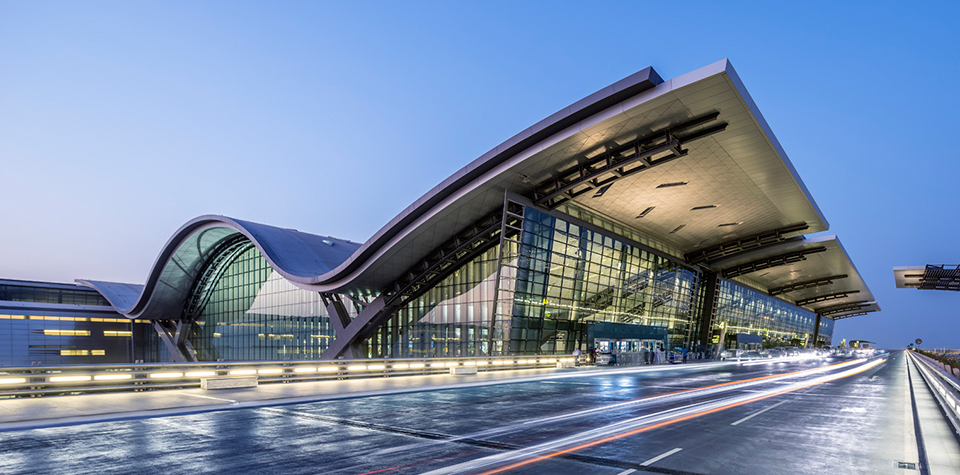Hundreds of commercial real estate developments have been built by airports in recent decades, frequently branded as an ‘airport city’ or an ‘aerotropolis.’ Leading hubs such as Amsterdam, Singapore, and Denver have changed their landside regions with a variety of successful commercial ventures such as hotels, office parks, shopping malls, and tourist attractions, among other things. So, what distinguishes successful airport real estate developments from their less successful counterparts? Come and delve into the article to find out tips to invest successfully in airport cities.
Key factors to consider while planning investments in Airport cities
Overall infrastructure in most Asia Pacific countries, including India, is weak, although airport infrastructure is excellent. As a result, governments are now spending on the development of infrastructure leading up to the airport, making Aerotropolis an appealing investment story.
As an investor or developer, there are several considerations that make up for a successful Aerotropolis investment. Investors must examine the following factors:
- Create an analysis to understand the current supply and demand for commercial facilities, which will necessitate competitor and end-use analysis; determine the bankability of the proposed project; identify the project’s key stakeholders (public or private), and determine access to land, whether through a lease, concessionaire, or freehold.
- Investors are seeking a return on investment that is based on the net operating asset’s cap rate. The aesthetics of the airport or the availability of land are not elements that would attract investment in the absence of a return.
Why invest in aerocity?
i. Advantage of location:
Having an apartment near the airport might be advantageous, especially if the buyer is a regular flyer. Well-developed roadways, flyovers, expressways, and motorways connect the areas surrounding airports to the city center, providing good connectivity. Airports, in addition to providing transportation to and from the city 24 hours a day, also provide a variety of job opportunities. Because of Gurgaon’s proximity to the Indira Gandhi International (IGI) airport and a lack of office space in Delhi, more corporations are establishing offices there.
ii. Good return on investment:
Airports across India have attracted infrastructural efforts in recent years, making them into high-growth zones. We’re all aware that good infrastructure leads to higher capital gains. This is particularly evident in Bangalore, where the new international airport altered the Devanahalli neighborhood. Once a sleepy village on the outskirts of town, the area has recently experienced a slew of infrastructure projects, including the projected Information Technology Investment Region (ITIR) and Special Economic Zones (SEZs).
iii. Good quality of life:
Being close to an airport encourages real estate development in the surrounding region, which means the neighborhood will inevitably become a commercial hotspot, with new retail shops, malls, hotels, schools, entertainment zones, and restaurants opening. This ensures a high standard of living in the area. The presence of high-end residences in the area ensures that the project has top-notch amenities such as a gym, spa, community center, and swimming pool.
Limitations of investing in aerocity
i. Overpriced properties:
A property near the airport costs a lot of money. Investors, particularly NRIs and HNIs, tend to invest in homes near airports, resulting in a higher price index for end users. It has been noted that cities with new airports are seeing the building of only high-end residences near the airport. Many developers in this region, though not all, require greater maintenance costs than other ‘premium location’ properties.
ii. A possible health hazard:
Exposure to aircraft noise may have direct or indirect consequences on the surrounding population’s health. The studies demonstrate a strong correlation between airplane noise and heart problems, even though the developers of such projects never mention it. According to a Harvard School of Public Health study, loud noise might cause a temporary increase in blood pressure. Long-term exposure to such noise may pose a more serious threat. Airplane noise at night can disrupt a person’s sleep, which is another risk factor for heart disease.
Assetmonk-The changing face of Indian Real Estate
Assetmonk is one of India’s fastest-growing WealthTech platforms offering real estate investment opportunities in cities such as Bangalore, Chennai, and Hyderabad. The company offers properties using a fractional ownership investment model, keeping in mind the best interest of its investors.
Assetmonk is all set to create a landmark with its ambitious co-living project, The Landing. One of the best investment opportunities in Hyderabad as well as in India today, The Landing is an aerocity project which enables investors to reap passive income not just for themselves but also for their generations to come. ‘The Landing’ also offers long-term rental income along with your complete payback on your investment within the initial 12 years itself. Located within Hyderabad International Airport, Assetmonk will take care of the management of the property to provide you a stress-free experience of owning an elite property.
